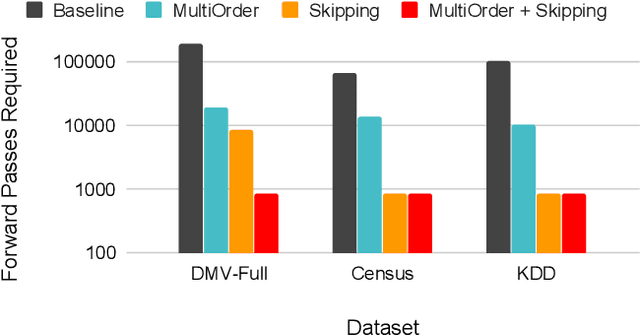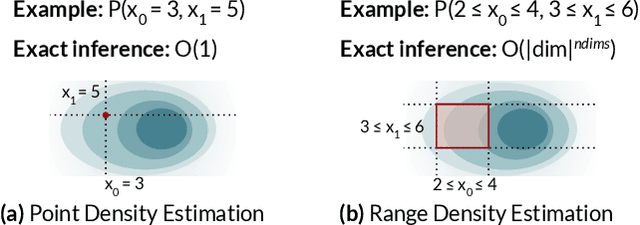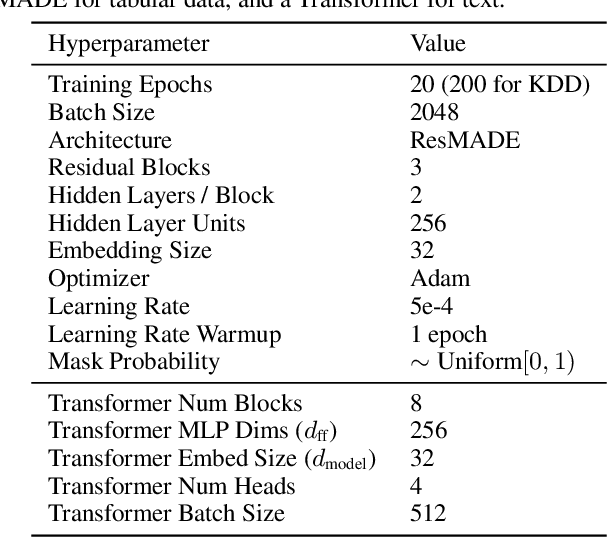Variable Skipping for Autoregressive Range Density Estimation
Paper and Code
Jul 10, 2020



Deep autoregressive models compute point likelihood estimates of individual data points. However, many applications (i.e., database cardinality estimation) require estimating range densities, a capability that is under-explored by current neural density estimation literature. In these applications, fast and accurate range density estimates over high-dimensional data directly impact user-perceived performance. In this paper, we explore a technique, variable skipping, for accelerating range density estimation over deep autoregressive models. This technique exploits the sparse structure of range density queries to avoid sampling unnecessary variables during approximate inference. We show that variable skipping provides 10-100$\times$ efficiency improvements when targeting challenging high-quantile error metrics, enables complex applications such as text pattern matching, and can be realized via a simple data augmentation procedure without changing the usual maximum likelihood objective.
 Add to Chrome
Add to Chrome Add to Firefox
Add to Firefox Add to Edge
Add to Edge